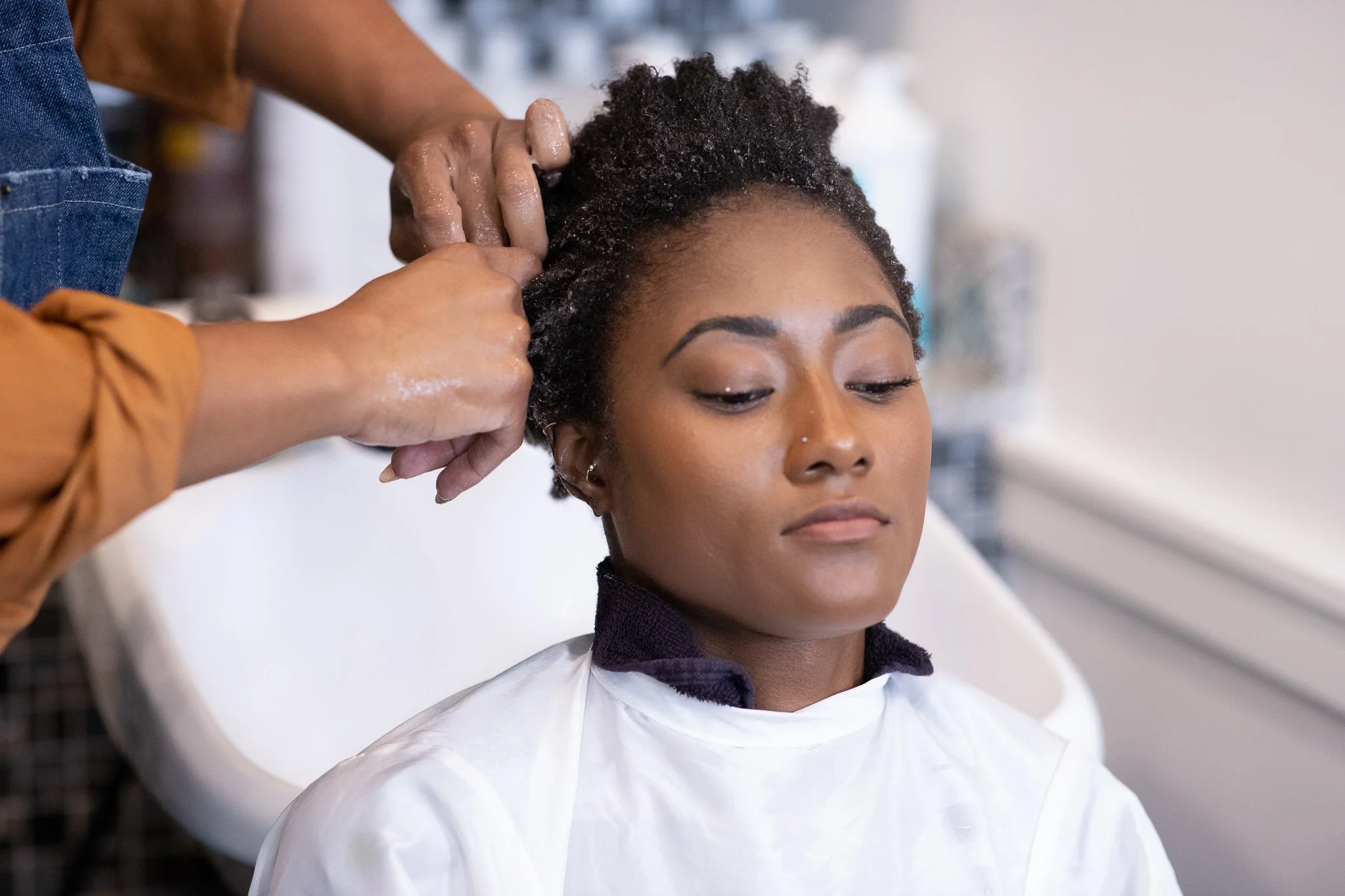3 Things to Know About Using Silicones For Your Curly + Natural Hair
As tight curl educators, we understand that silicones can be a fairly controversial topic within the natural hair community.
We believe that many tight curlies + naturals like yourselves may have read things online that have ruled silicones inherently bad or even may have cautioned you against using products that contain them to mitigate potential damage, however this isn’t necessarily 100% true.
We spoke to two licensed curl specialists—Roni Jones located in Pasadena, CA and Sasha Earnest located in Raleigh, NC to provide their professional opinions regarding silicones.
This blog post will outline 3 things we believe you should know about silicones when it comes to your curly + natural hair.
So, What Exactly Are Silicones?
The word silicone is defined as “an artificial substance” also known as a polymer. A polymer is an artificial material built from a chain of smaller similar units.
Polymers are often the source of the “hold” in styling products such as gels and hairsprays. Polymers dry down and form strong films on the hair that holds the hair in place.
“There are 3 types of silicones: water-soluble silicones, non-water soluble silicones and evaporating silicones. Within the beauty industry, many different hair styling products contain silicone.”
When it comes to using products that contain silicones, common concerns typically are product build-up, excessive frizz, loss of curl definition and needing stronger surfactants (such as clarifying shampoos) to properly remove them from the hair.
“Surfactant, short for surface active agent, is the active cleansing ingredient found in shampoo.”
#1: Silicones Are Not Inherently “Bad”
Silicones have their place in hair care and are not inherently bad or to be completely honest, always 100% avoidable in product formulations.
Pros to using products that contain silicones include the ability to provide slip, can help combat frizz by acting as a humidity blocker, and provides shine. They can also act as a protective layer when using heat styling tools such as blow dryers or hot irons.
It’s important to note that there are both water soluble and non-water soluble silicones. Examples of water soluble silicones include cyclomethicone, dimethicone copolyol and hydrolyzed wheat protein (hydroxypropyl polysiloxane).
Examples of non-water soluble silicones include phenyl trimethicone, dimethicone and cyclomethicone.
“Water soluble silicones dissolve in water and will easily wash out of the hair. Alternatively, non-water soluble silicones do not dissolve in water and will require a clarifying shampoo to properly remove them and help prevent product build-up.”
We asked licensed curl specialist + colorist, Sasha Earnest, if there’s a place for silicones when caring for your tight curly + natural hair.
Absolutely! Silicones have a crucial role in curly hair care. It’s important to understand the different types of silicones and how they function. Some aid in moisture retention and color preservation, benefiting the estimated 78 million people in the US using hair color. They provide slip for detangling and help maintain moisture, enhancing overall curl health.
Sasha continued on to say,
“When working with clients with colored and coarse hair textures, I automatically reach for products containing silicones. They offer essential lubrication, particularly beneficial for managing tangled or excessively dry hair.
It’s essential to choose silicones wisely, considering their specific benefits for different hair needs. There are three categories of silicones so I have to consider which silicone I need and for what. I also educate the client of any follow up routines they may need to do at home because of our use of certain silicones".
#2: Silicones Have Their Place In Hair Care
Let’s try to set aside the infamous “is this product good or bad?” question to the side for a moment and as Sasha mentioned, reach for products that will help properly address our unique hair care needs.
We also asked licensed curl specialist, Roni Jones, is there a place for silicones when working with tight curly + natural hair.
This is a complicated question. Silicones can serve many purposes. When or if you need them depends on your hair type and texture, hair care habits and needs and your desired outcome.
Roni confirmed that from her experience, silicones coat the hair with a hydrophobic film that builds up if not properly removed.
“When it comes to curls, water is the key ingredient that brings them to life and makes them pop,” Roni said.
Roni continued on to say,
“When it comes to curls, the best time to consider using silicones would be on hair that has become extremely porous due to damage from things like color, neglect or elasticity loss from things like over manipulating or pulling strands too tight for extended periods of time.
When silicones are not completely removed using the right cleansers, curls can stop absorbing water thus becoming dehydrated and weblike. This results in dull, unmanageable, lifeless curls that no longer behave as well as they can or once did.”
#3: Use Your Essential Elements to Help Determine Your Hair Care Needs
When it comes to deciding if you need to incorporate a product that contains silicones in your at-home hair care routine, this will heavily depend on your unique Essential Elements.
“The Essential Elements of Hair are the generally accepted principles (GAP) in the study of hair as understood by cosmetologists, dermatologists, and lay people alike. They are broken down to texture, surface texture, density, porosity, elasticity, curl diameter, hydration level, climate, lifestyle and water quality.”
We would also like to point out that having a good understanding of The Shampoo Spectrum and using the appropriate cleanser to properly remove any dirt, debris or product build-up will be very helpful for your at-home hair care routines.
As always, we would highly suggest partnering with a professional stylist near you for tailored insight on whether or not a specific product is ideal to use in your hair care routine.
We asked Sasha and Roni if tight curlies + naturals should be apprehensive to using products that contain silicones at-home.
Sasha stated:
“Curly clients shouldn’t fear silicones for at-home use, as it depends on their individual hair goals and maintenance routines. Using products with silicones can be beneficial, especially for heat protection and combating humidity,” Sasha said.
She continued, “With various silicone types available, it’s essential to partner with a knowledgeable hair care specialist who understands different product lines and can guide clients effectively. Ultimately, embracing silicones and understanding their benefits can enhance the effectiveness of curly hair care routines.”
Roni added:
“It depends on their regimen and/or beliefs (no or low synthetic ingredients, no ingredients known to cause health issues or allergic reactions) as a curly,” Roni said.
She continued, “If your regimen is water soluble, silicones can be extremely problematic—especially with continuous use. The cleansers are not always strong enough to completely remove them. This includes consistent use of water soluble silicones, too.
Those who don’t follow a water soluble routine, are likely to be using a product or two containing silicones. Best practices in cases like these are to incorporate a shampoo guaranteed to remove silicones like clarifying shampoo or cleansers containing surfactants like Ammonium lauryl sulfate, Sodium laureth sulfate, Ammonium laureth sulfate or Sodium trideceth sulfate. Just don’t overdo it. Too much clarifying or overcleansing with harsh surfactants can adversely affect your curls.”
Do you need more help with product selection? We provide our full curated product list along with instructions for proper use in our digital guide—Wash Your Damn Hair Styling & Product Guide.
This guide is a beginner-friendly resource for any tight curly + natural looking to simplify their hair care routines. It includes styling video tutorials demonstrated by licensed hair stylists, a robust curated product list from shampoos to stylers, our favorite product combinations to use on in-salon clients and much more!
We’d love to invite you to give our digital guide a try to help jumpstart your healthy hair care routine. Use the coupon code ELEVATE at checkout for $20 off your purchase.







